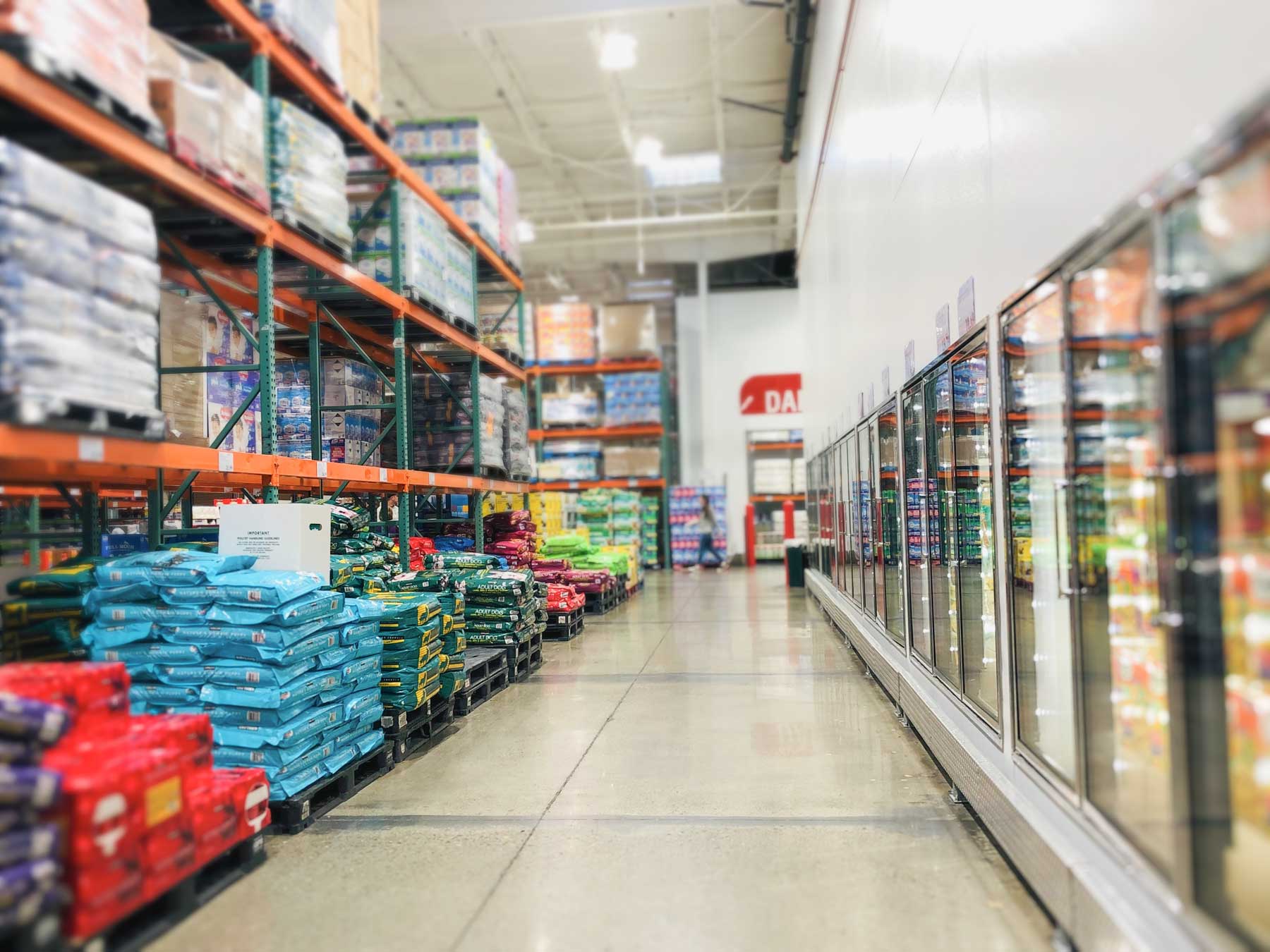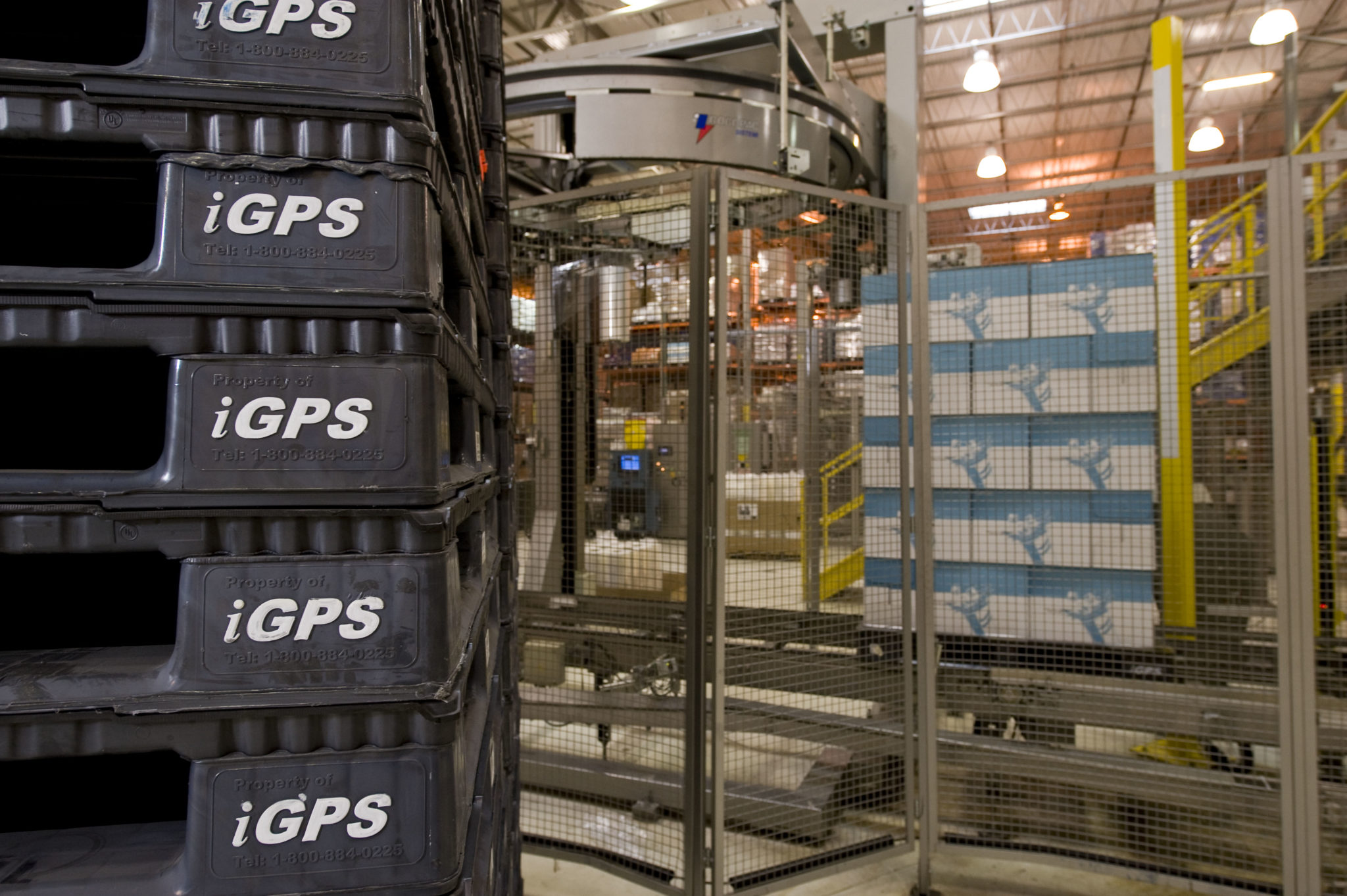Costco Pallet Requirements
Costco is a significant player in the grocery segment. This retail giant exceeded $163 billion in revenue in 2020 and that figure is projected to keep increasing. As the second-largest retailer in the world, Costco is a vital connection for any vendor. By familiarizing themselves with Costco’s requirements for pallets, vendors can take a step toward establishing a strong and mutually beneficial relationship with this popular chain.

Basic Costco Pallet Requirements
Part of the reason for Costco’s stringent focus on pallet quality is that many of the pallets used to ship products to Costco wind up on their retail floor. As a result, it’s crucial that these platforms not cause damage to the products they carry or injury to customers and employees in the retail environment. Here are Costco’s requirements for general delivery pallets:
- Pallets should be 48 by 40 inches, with no product overhang.
- General use block pallets are required. Stringer pallets are not accepted as general use pallets.
- Pallets loaded with less than 750 pounds must be able to handle 1500 pounds of bottom layer weight.
- Pallets loaded with more than 750 pounds must withstand 2500 pounds of the lowest layer weight.
- Total pallet load weight cannot exceed 2500 pounds.
- Complete load heights cannot exceed 58 inches, including pallet height.
- Costco accepts block pallets from iGPS, CHEP, and PECO. All others require advance approval on a case-by-case basis. Email pallets@costco.com for guidance.
On delivery, all pallets–including those from approved pallet pooling companies–are visually assessed for load support, soundness, and floor use serviceability. All pallets must appear dry and uncontaminated. Pallets not meeting these standards will be rejected. For vendors interested in working with Costco, it’s important to note that the company has some changes planned for its pallet guidelines so this page may not include all necessary or updated information. Please confirm all specs with Costco directly.

Costco’s Plastic Pallet Initiative
In 2020, Costco declared its desire to switch to plastic pallets from as many vendors as possible. Some of the reasons cited for the change to plastic include:
| Lighter Weight | A wood block pallet reaches the end of its lifespan at about 20 trips. As Costco uses pallets on the retail floor, these pallets must meet higher standards and be retired much earlier. A high-quality plastic pallet can make scores of trips and still remain suitable for display purposes. |
| Longer Lifespan | A wood block pallet reaches the end of its lifespan at about 20 trips. As Costco uses pallets on the retail floor, these pallets must meet higher standards and be retired much earlier. A high-quality plastic pallet can make 4 times as many trips and remain suitable for display purposes. |
| Less Debris | Wood pallets shed fragments, dust, debris, and fasteners that require constant cleanup. Plastic pallets don’t leave behind debris, keeping the backroom and retail store floor tidier and safer. |
| Greater Sustainability | Plastic pallets are recyclable. After a plastic pallet reaches the end of its useful life, it is ground down and remolded to make a “new” pallet. Meanwhile, wood pallets contribute to deforestation and often wind up in landfills. |
| Lower Costs | The weights and dimensions of wood pallets fluctuate widely with condition, age, and exposure to moisture. This can wreak havoc on automated equipment that requires careful calibration for size and weight. Plastic pallets maintain a uniform weight and dimensions. |
| Automation Support | The weights and dimensions of wood pallets fluctuate widely with condition, age, and exposure to moisture. This can wreak havoc on automated equipment that requires careful calibration for size and weight. Plastic pallets maintain a uniform weight and dimensions. |
| Hygienic | Because wood pallets are porous, they absorb water and liquids from spills that could encourage the growth of mold and bacteria, contaminating the load. Plastic pallets are moisture-resistant and easy to keep clean, reducing the likelihood of mold or cross-contamination. |
| Technology Support | Plastic pallets are easily embedded with RFID tags, which make it possible to track and log individual pallets and work well in conjunction with warehouse automation systems. |
As Costco shifts to a plastic pallet-only model, vendors and manufacturers would be wise to consider doing the same. A plastic pallet pooling model, in which pallets are rented rather than owned, provides a cost-effective way for vendors to make the transition to plastic. By switching to plastic pallets now, vendors can be proactive in meeting Costco’s pallet requirements while also lowering their total cost of business (TCOB).